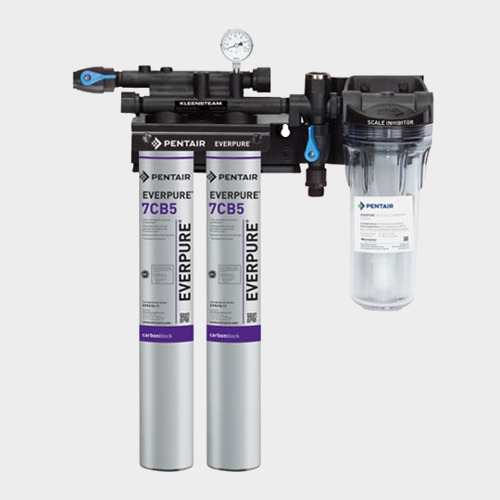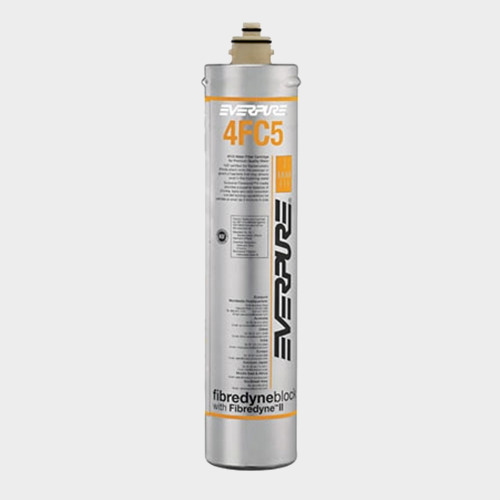
Quest Custom Fabrication
January 31, 2019
Eco-Guide: HOSHIZAKI
June 10, 2019
There are different means of treating water, and the type of treatment depends on the condition of your water, and the equipment being used. We recommend that you have your water tested. This will help determine the best products to optimize your WaterCare needs. Remember to change your water filters on a regular basis and according to manufacturer instructions.
Coffee and tea are close to 100 percent water, Ice is 100 percent water. Soups, sauces and most liquids have water as its main ingredient. Ice is used in beverages and to cool foods. Make no mistake, water is food.
Why Worry About Filtration?
Every day, restaurants use a significant amount of water, from drinks and ice to dishwashing and cooking. Over time, water quality, specifically water hardness, can cause inefficiencies within your water equipment, which can result in increased utility costs.
How Water Becomes Contaminated

Water-using foodservice equipment is susceptible to poor water quality problems and requires some type of water treatment to ensure the highest quality results. For example, two-thirds of ice machine breakdowns are due to water-related issues. During the freezing process, a high concentration of dissolved minerals is left behind. This build-up of minerals causes the scale to stick to the valves, which over time can cause the machine to freeze up or stop working.
But where do these dissolved minerals come from? Water is the world's greatest solvent: it picks up characteristics from everything it comes in contact with. These dissolved minerals are a result of millions of years of natural erosion. Given the opportunity, nature wants to return to its natural state, i.e. rock, but it needs a catalyst. The catalyst is temperature; either heating or freezing. So when you make ice or boiling water, these temperatures changes cause 'invisible & dissolved' minerals to come out of the solution and form scale inside your equipment.
What is Affected?

Pentair Everpure, who provide water quality solutions for restaurants, say that as little as quarter-inch of scale build-up can decrease energy efficiency by nearly 40%. On a typical Combi oven that costs $1,500 a year in electricity a 40% reduction in efficiency could mean up to $600 in wasted electricity annually.
Coffee and tea brewers also fall victim to scale build-up. Think of this kind of build up as insulation, which can cause heating elements to use excessive amounts of energy and eventually break down if they are not cleaned properly.
How You Can Elimate Scale

There are a number of well-recognized methods for reducing scale build-up and choosing one is dependent on your site-specific water quality. Determining the right solution is simple and cost-effective using an Everpure Smartworks test kit onsite.
In addition to reducing scale build-up and equipment downtime, filtration also provides consistent great tasting water for all of your beverages. Without quality water, all aspects of foodservice can be affected, including coffee brewing, foundation beverages, ice, steamed cooking, sauces and reductions, sanitizing, warewashing, and most importantly, drinking water. Personal preference will dictate how you maintain your machines, but for best results, we recommend keeping your filters on a schedule and changing them every six months (depending on the quantity of use). Over time these filtration systems will pay for themselves, saving you time and money.
Water is the single most important ingredient in any commercial kitchen. Don't let poor water quality slow you down, ask us how you can improve your water today



